
Lebanon evokes a predominantly neutral, but somewhat cautious attitude among Ukrainian citizens. This is evidenced by the results of a survey conducted by Active Group in cooperation with the Experts Club think tank in April 2025.
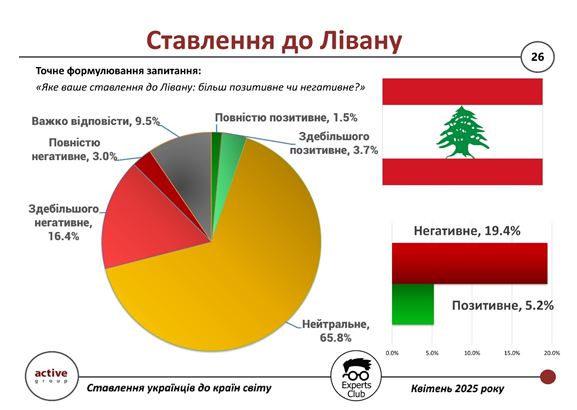
According to the survey, 65.8% of Ukrainians expressed a neutral position towards Lebanon. Only 5.2% of respondents spoke positively about the country (3.7% mostly positive, 1.5% completely positive), while 19.4% expressed a negative attitude (16.4% mostly negative, 3.0% completely negative). Another 9.5% of respondents were unable to answer.
“Ukrainian society perceives Lebanon through the prism of regional instability and religious and political conflicts in the Middle East. This affects the country’s image in the information field,” said Oleksandr Pozniy, co-founder of Active Group.
These data demonstrate both the insufficient level of contact between the two countries and the influence of global stereotypes on public perception.
The presentation of the study is available at the link.
ACTIVE GROUP, DIPLOMACY, EXPERTS CLUB, Pozniy, SOCIOLOGY, URAKIN

Kuwait remains a country with limited influence on public opinion in Ukraine. This is evidenced by the results of a sociological survey conducted by Active Group in April 2025 in cooperation with the Experts Club think tank.
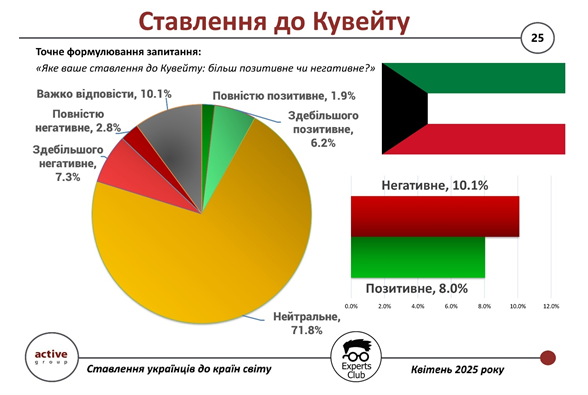
According to the survey, 71.8% of Ukrainians have a neutral attitude toward Kuwait. Only 8.0% of respondents had a positive attitude (6.2% mostly positive, 1.9% completely positive), while 10.1% expressed a negative opinion (7.3% mostly negative, 2.8% completely negative). Another 10.1% of respondents were unable to answer.
“Attitudes toward Kuwait are not clearly formed due to the lack of public manifestations of cooperation, assistance, or cultural presence of this country in Ukraine,” said Maxim Urakin, founder of Experts Club.
This creates potential for Kuwait to make itself known in Ukraine through diplomatic, investment, or humanitarian initiatives, if such a goal is set by the state.
The presentation of the study is available at the link.
ACTIVE GROUP, DIPLOMACY, EXPERTS CLUB, Pozniy, SOCIOLOGY, URAKIN

Jordan occupies a moderate position in the perception of Ukrainian society—without any strong positive or negative emotions. This is evidenced by the results of a sociological survey conducted by Active Group in partnership with the Experts Club think tank in April 2025.
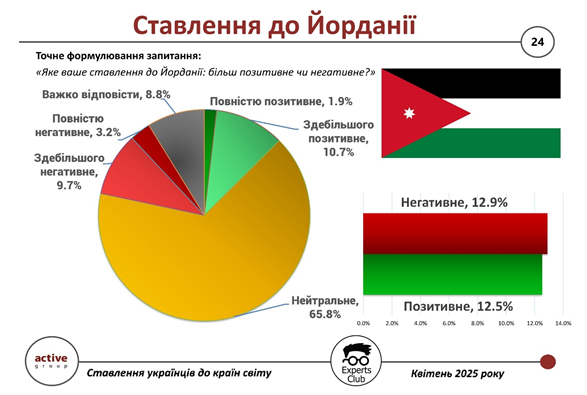
According to the survey, 65.8% of respondents expressed a neutral attitude toward Jordan — one of the highest rates among countries outside Europe. A positive attitude was declared by 12.5% of Ukrainians (10.7% — mostly positive, 1.9% — completely positive), negative — 12.9% (9.7% — mostly negative, 3.2% — completely negative). Another 8.8% abstained from answering.
“Ukrainians generally do not have a formed image of Jordan — it is mostly associated with regional affairs in the Middle East, but is not the subject of deep public interest. This explains the high proportion of neutral responses,” said Oleksandr Pozniy, co-founder of Active Group.
These data create opportunities for the development of new areas of Ukrainian-Jordanian cooperation, primarily in the cultural and humanitarian contexts.
The presentation of the study is available at the link.
ACTIVE GROUP, DIPLOMACY, EXPERTS CLUB, Pozniy, SOCIOLOGY, URAKIN

Among all Middle Eastern countries, Iraq ranks among those toward which Ukrainians have the least positive attitudes. These data were obtained from a sociological survey conducted by Active Group in April 2025 in cooperation with the information and analytical center Experts Club.
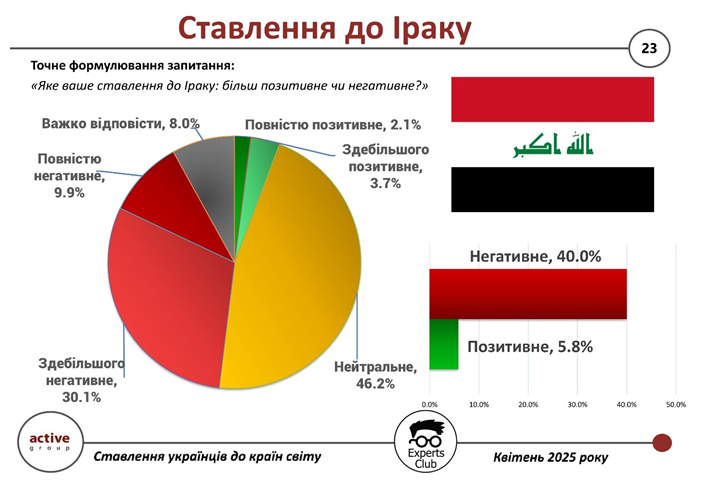
According to the results, 40.0% of Ukrainians have a negative attitude toward Iraq (30.1% — mostly negative, 9.9% — completely negative). Only 5.8% of respondents expressed a positive attitude (3.7% — mostly positive, 2.1% — completely positive). Another 46.2% of respondents chose a neutral position, and 8.0% were unable to answer.
“Ukrainians associate Iraq primarily with military conflicts, terrorism, instability, and geopolitical threats, rather than diplomatic or economic contacts. This shapes a persistent image of the country as a ‘risk zone,’” commented Maxim Urakin, founder of Experts Club.
The results indicate deep informational associations that need to be changed if countries plan to expand contacts in the peaceful, trade, or cultural spheres.
The presentation of the study is available at the link.
ACTIVE GROUP, DIPLOMACY, EXPERTS CLUB, Pozniy, SOCIOLOGY, URAKIN
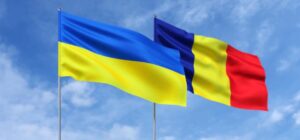
Romania, which is Ukraine’s neighbor and a member of the EU and NATO, is perceived by Ukrainian society as mostly neutral or moderately positive. This is evidenced by the results of a sociological survey conducted by Active Group in April 2025 in collaboration with the Experts Club think tank.
According to the survey, 41.1% of Ukrainians have a positive attitude toward Romania (33.6% mostly positive, 7.5% completely positive). On the other hand, 8.8% of respondents expressed a negative opinion (7.3% mostly negative, 1.5% completely negative). The largest share was held by those with a neutral position — 46.5%, while 3.6% of respondents were undecided.
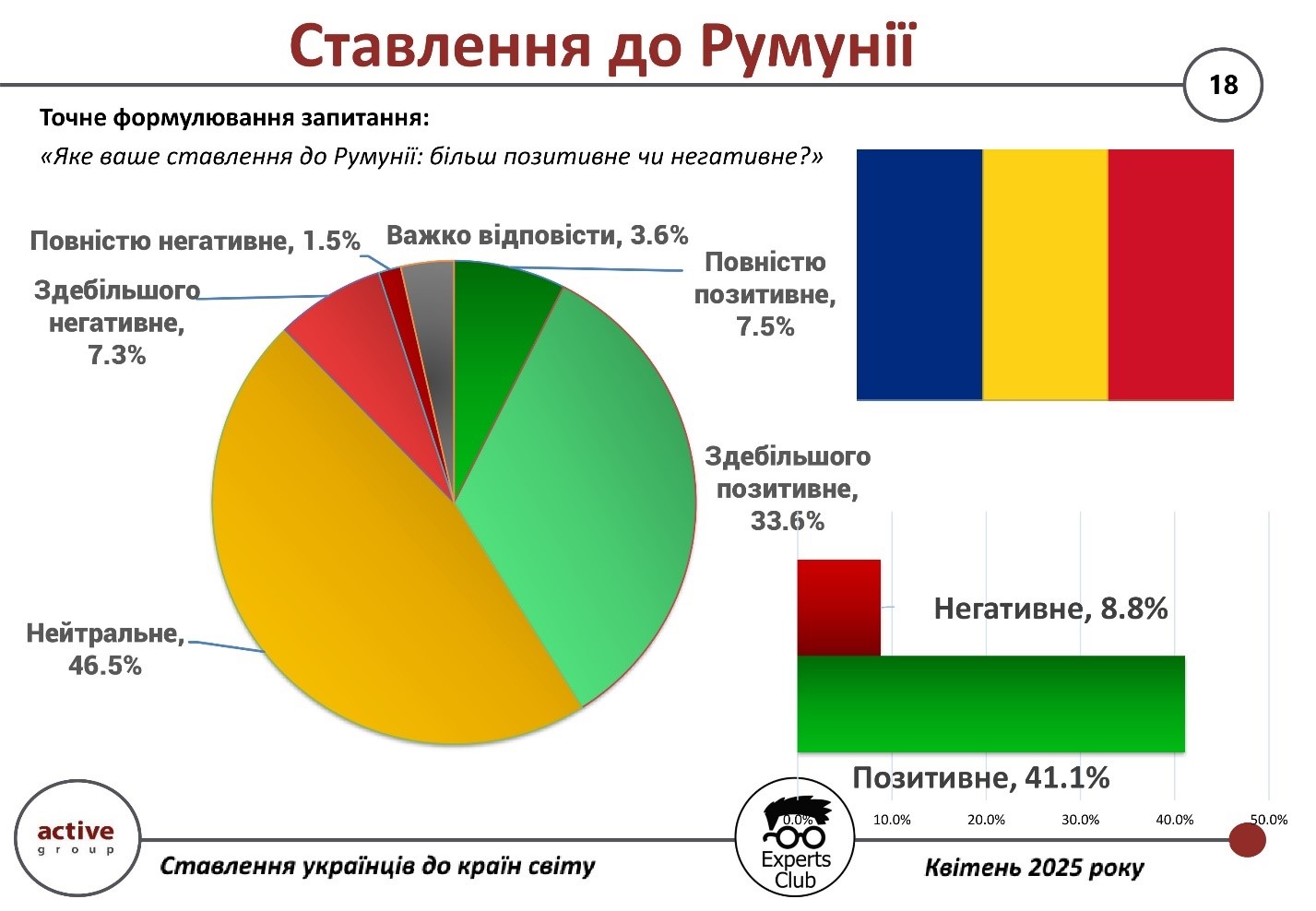
“Neutrality towards Romania can be explained by both limited information about its support and the lack of high-profile initiatives that shape the image in the public consciousness. Nevertheless, there is almost no negativity,” commented Maksim Urakin, founder of Experts Club.
Thus, Romania has significant potential to deepen cooperation and improve its image in the eyes of Ukrainian society.
The presentation of the study is available at the link.
ACTIVE GROUP, DIPLOMACY, EXPERTS CLUB, Pozniy, SOCIOLOGY, URAKIN
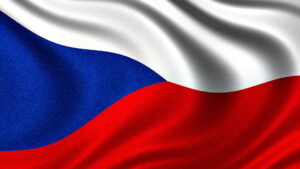
The Czech Republic maintains a positive image among Ukrainians, demonstrating a balance of support, sympathy, and stability in public perception. These data were obtained from a survey conducted by the sociological company Active Group in May 2024 in partnership with the analytical center Experts Club.
According to the survey, 61.7% of Ukrainians expressed a positive attitude toward the Czech Republic: 42.4% — mostly positive, and another 19.3% — completely positive. Only 3.9% of respondents had a negative attitude (3.4% mostly negative, 0.6% completely negative). 32.1% of those surveyed took a neutral position, and another 2.2% were unable to answer.
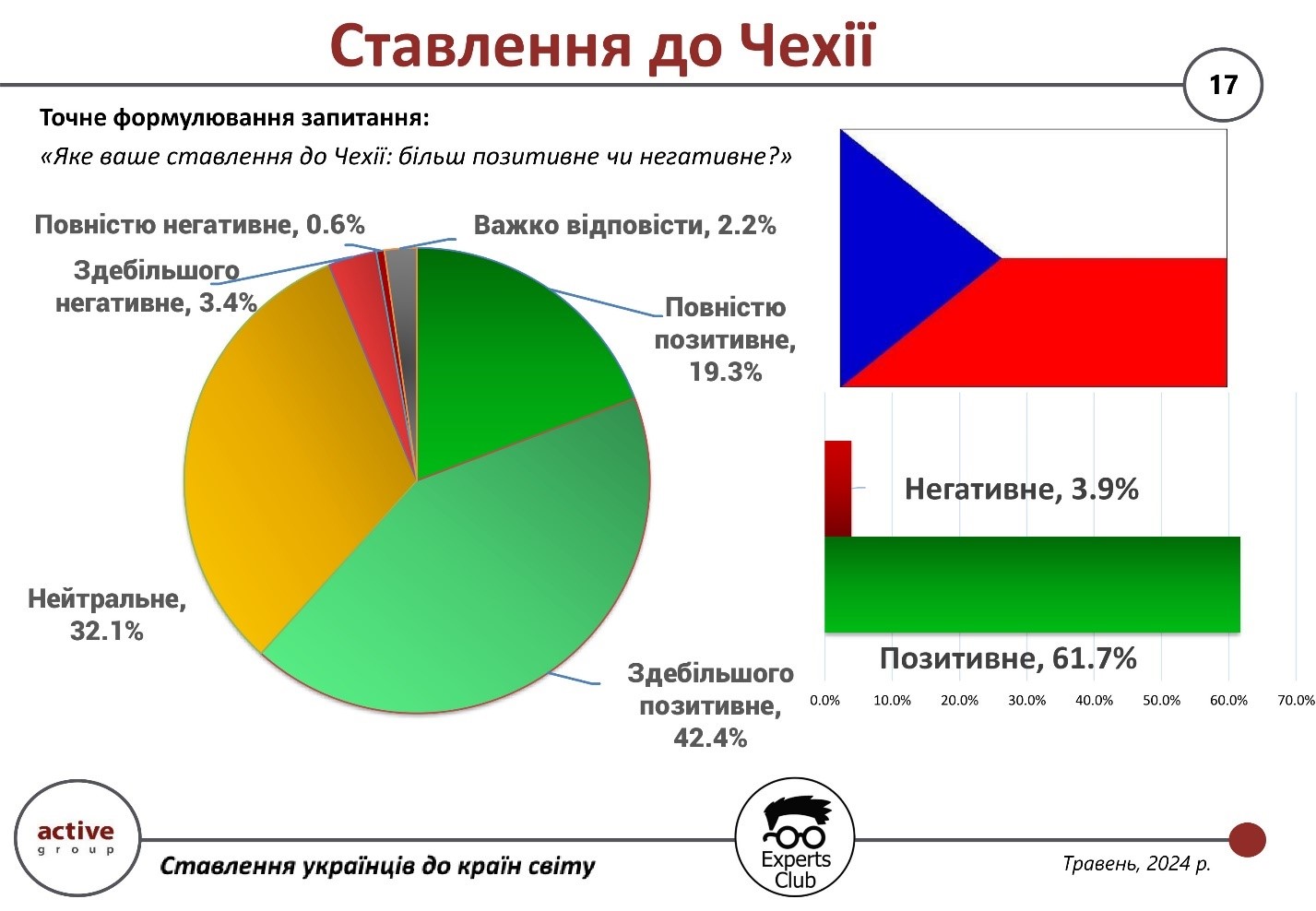
“The Czech Republic has consistently provided support to Ukraine in the political, humanitarian, and everyday spheres. At the same time, its image is not overly emotional or polarized, hence the significant share of neutral perceptions,” explained Oleksandr Pozniy, co-founder of Active Group.
This indicates a high level of trust on the part of Ukrainians, which could serve as a basis for further strengthening the strategic partnership.
The presentation of the study is available at the link.
ACTIVE GROUP, DIPLOMACY, EXPERTS CLUB, Pozniy, SOCIOLOGY, URAKIN